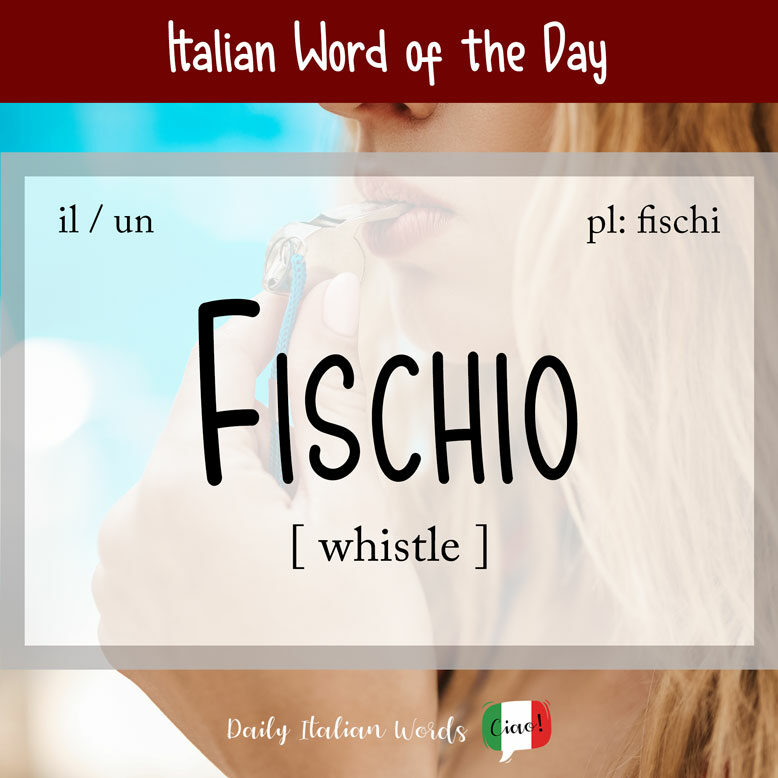The word fischio in Italian refers to any kind of high-pitched sound emitted by blowing through the teeth and lips, in addition to a similar range of sounds emitted by birds, animals or objects. Generally we’d translate this word as whistle, but other possible translations include hiss, call, cry, or whizz.

Fischio is a masculine noun, so it takes the following definite and indefinite articles:
il fischio
the whistle
un fischio
a whistle
i fischi
the whistles
dei fischi
(some) whistles
Here are a few examples of things that, according to Italians, produce a fischio besides human beings:
- il fischio del merlo = the call of the blackbird
- il fischio del vento = the whistling of the wind
- il fischio del proiettile = the whizzing of the bullet
- il fischio del serpente = the hissing of the snake
In order to say to whistle, you have the option of using either the single verb fischiare or the verbs fare (to make) / emettere (to emit) / mandare (to send) placed in front of un fischio. Another possibility is the expression chiamare con un fischio (to call with a whistle).
Il pastore fece un fischio al suo cane.
The shepherd whistled to his dog.
Fare un fischio can also mean to inform. In this sense, it is a colloquial expression a person will use to ask to be notified about something.
Quando hai finito, fammi un fischio.
When you’re done, let me know.
As for the small instrument used to produce a high-pitched sound, it is called a fischietto in Italian, with the diminutive -etto suffix.

Fischio also refers to the kind of whistling produced to express disapproval toward a speaker or performer. In this case, the translation would be boo.
L’oratore fu accolto dai fischi del pubblico.
The speaker was welcomed with boos from the audience.
Un fischio di ammirazione (lit. a whistle of admiration) the term for a loud whistle of a sexual nature made by a man to a passing woman.
A well-known idiomatic expression in Italian is prendere fischi per fiaschi (literally “to mistake whistles for fiascos”) which means “to misunderstand a word or phrase”. It is similar to another expression prendere lucciole per lanterne (to mistake fireflies for lanterns). The equivalent in English would be to get the wrong end of the stick.
Heather Broster is a graduate with honours in linguistics from the University of Western Ontario. She is an aspiring polyglot, proficient in English and Italian, as well as Japanese, Welsh, and French to varying degrees of fluency. Originally from Toronto, Heather has resided in various countries, notably Italy for a period of six years. Her primary focus lies in the fields of language acquisition, education, and bilingual instruction.


